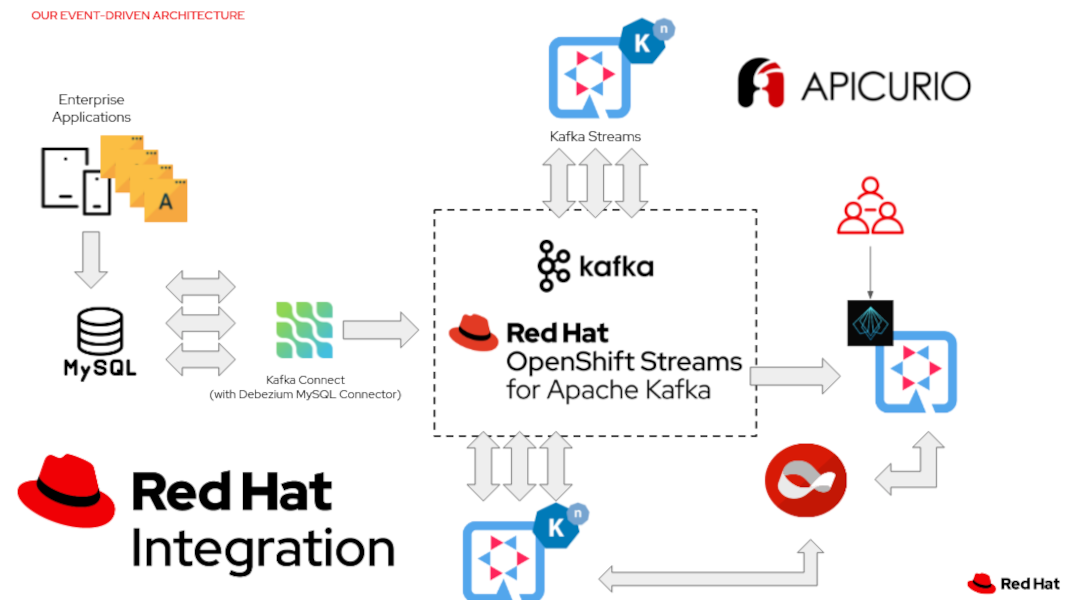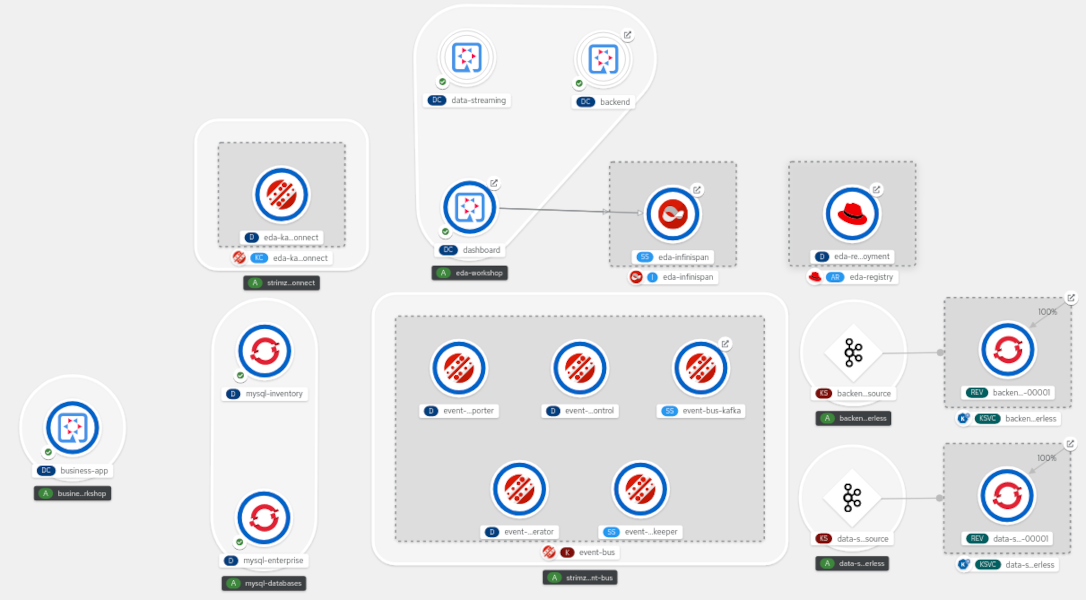In the digital transformation strategies of companies, Serverless technologies, Event-Driven Architectures (EDA) and data capture patterns (Change Data Capture) are gaining more strength every day.
Within this scenario, Red Hat OpenShift Serverless, Red Hat AMQ Streams, Red Hat Integration, Red Hat Data Grid, and Red Hat build of Quarkus, offer companies significant cost savings and multiple operational benefits by shifting infrastructure and provisioning responsibilities to the different frameworks. This enables you to solve problems quickly, at scale, and with high availability.
This repository includes a practical business example so that we can adopt modern and agile application designs and implementations (containers, Serverless, streaming, etc.).
The logical architecture diagram of this use case is:
At the end of the instructions you will have deployed a full Event-Driven Architecture with the following deployment topology:
This file include the list of steps to deploy easily this use case for your learning and testing efforts about these amazing technologies and products.
This architecture has been tested in Red Hat OpenShift Container Platform 4.7 version.
As a normal user in your OpenShift cluster, create a eda-workshop namespace:
❯ oc login -u user
❯ oc new-project eda-workshopFollow the instructions
Follow the instructions
Follow the instructions
Follow the instructions
Follow the instructions
Follow the instructions
Follow the instructions
Follow the instructions
Follow the instructions
Follow the instructions
Follow the instructions
Follow the instructions
Follow the instructions
Follow the instructions

